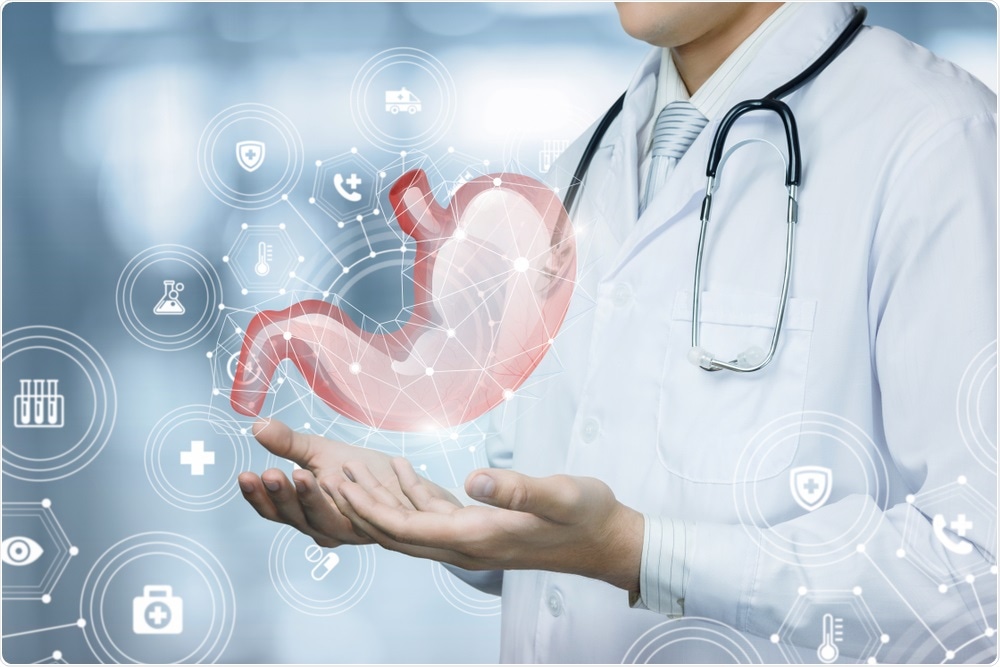A group of researchers led from Great Ormond Street Hospital (GOSH), UCL Great Ormond Street Institute of Child Health (UCL GOS ICH), and the Istituto Zooprofilattico Sperimentale delle Venezie (Legnaro, Italy) hinged on recent progress to culture “mini-organs” in a lab, called organoids. These organoids offer scientists with priceless tools to analyze how organs function when they are healthy and when affected by the disease.

Image Credit: Natali _ Mis/Shutterstock.com
The researchers for the first time detailed how to grow mini-stomach organoids, across various stages of development—fetal, child, and adult. The research was published in the Nature Communications journal.
To carry out this study, scientists isolated stem cells from patient stomach samples, and cultured them under special conditions in the laboratory to acquire mini-stomachs in a dish that imitates the behavior of a human stomach.
With the progression of the COVID-19 pandemic, numerous hospitals reported gastrointestinal symptoms along with common respiratory impacts like coughs and breathing difficulties, especially in children.
Pursuing these cases, the scientists, headed by Dr. Giovanni Giuseppe Giobbe, Professor Nicola Elvassore and Professor Paolo De Coppi from UCL GOS ICH, and Dr. Francesco Bonfante from Istituto Zooprofilattico Sperimentale delle Venezie, evaluated that their mini-stomach model can be employed to analyze how a SARS-CoV-2 infection impacts the stomach.
The researchers could enable the infection of the mini-stomachs from the outside by revealing the surface of the cells to the virus. With this, they demonstrated that SARS-CoV-2 could replicate within the stomach, more distinctly in organoids that were cultured from the child and late fetal cells, as against adult and early fetal cells.
The scientists also analyzed the effect of the infection on the cells inside the organoids, revealing that a particular group of cells, named delta cells—producing a hormone called somatostatin—had died explaining some of the stomach symptoms observed in patients. The group’s lab results mirror the pattern of gastrointestinal symptoms observed in patients of various ages.
This study has highlighted that SARS-CoV-2 infection may begin to infect the gastrointestinal system via the stomach in children and young babies. We hope that this adds another piece to the puzzle as we try to build our understanding of the impact of the virus across the body. As a research team, we are proud to have been able contribute to the global fight against coronavirus in this way, pivoting our research as the need arose.”
Paolo De Coppi, NIHR Professor and Consultant Paediatric Surgeon, Great Ormond Street Hospital
Paolo De Coppi is also the UCL GOS ICH Nuffield Professor of Paediatric Surgery.
The researchers now intend to proceed their research with these novel mini-stomachs, intending to analyze how the stomach develops from early in pregnancy to adulthood. They also anticipate observing the effects of other general gastrointestinal infections.
We have been able to develop the first fetal model of the stomach and have demonstrated that the human gastric organoids can be used to accurately study real-world infections. Developing reliable models of organs that scientists and doctors can study in a lab are vital as they allow us to work out how organ tissue is affected during disease and infection.”
Dr Giovanni G. Giobbe, Study Co-Lead Author and Senior Research Associate, UCL Great Ormond Street Institute of Child Health
“We want to increase our understanding of how infections impact the stomach so that we can further the search for new treatments,” concludes Dr. Giovanni G. Giobbe.